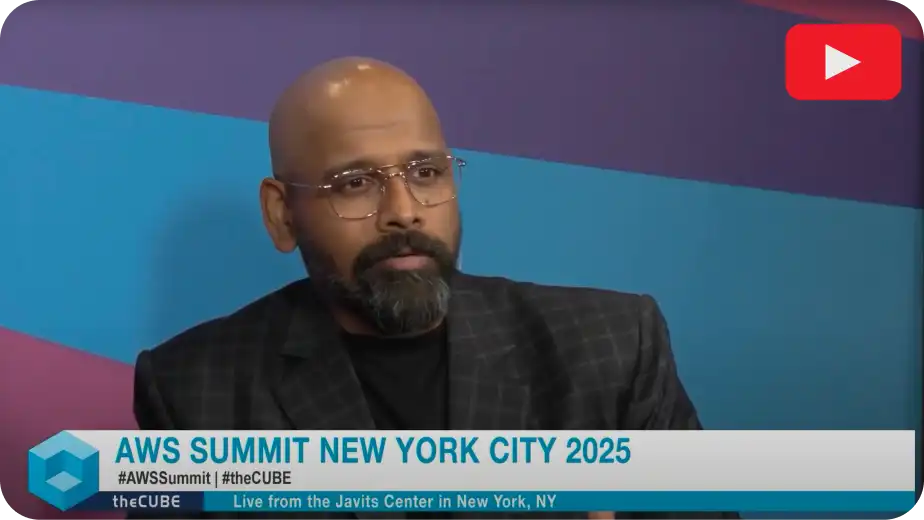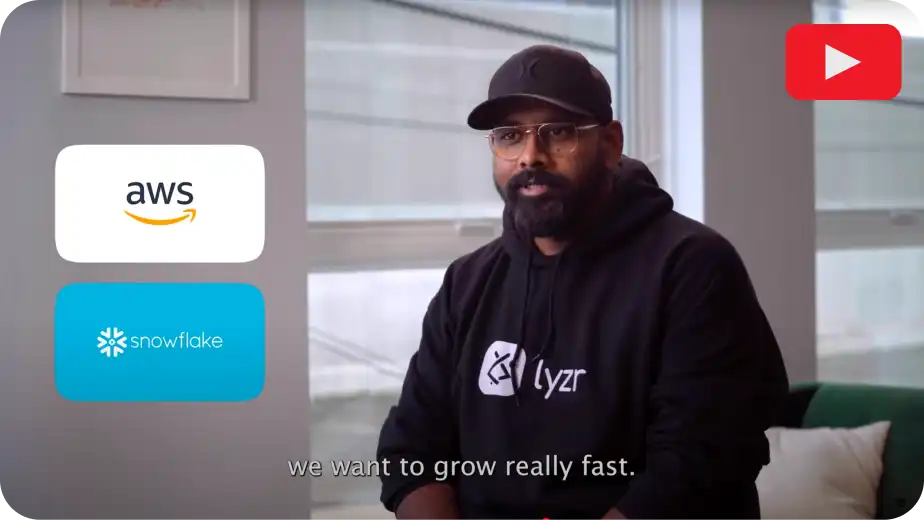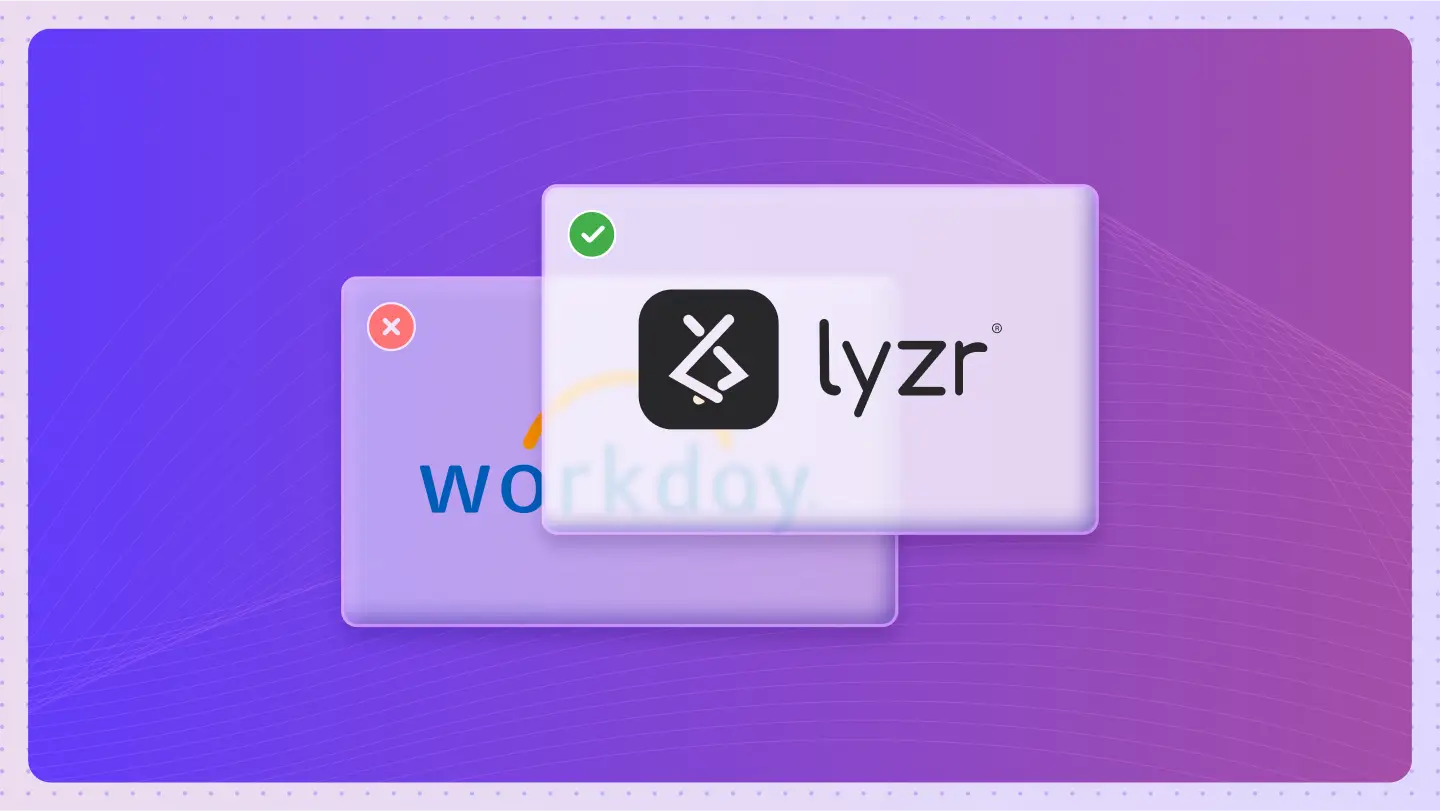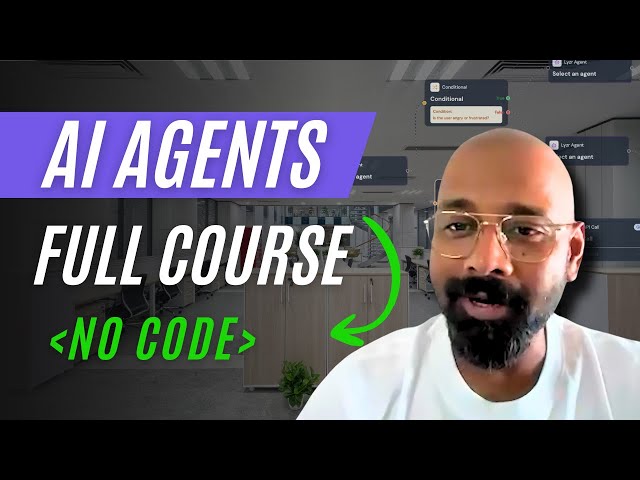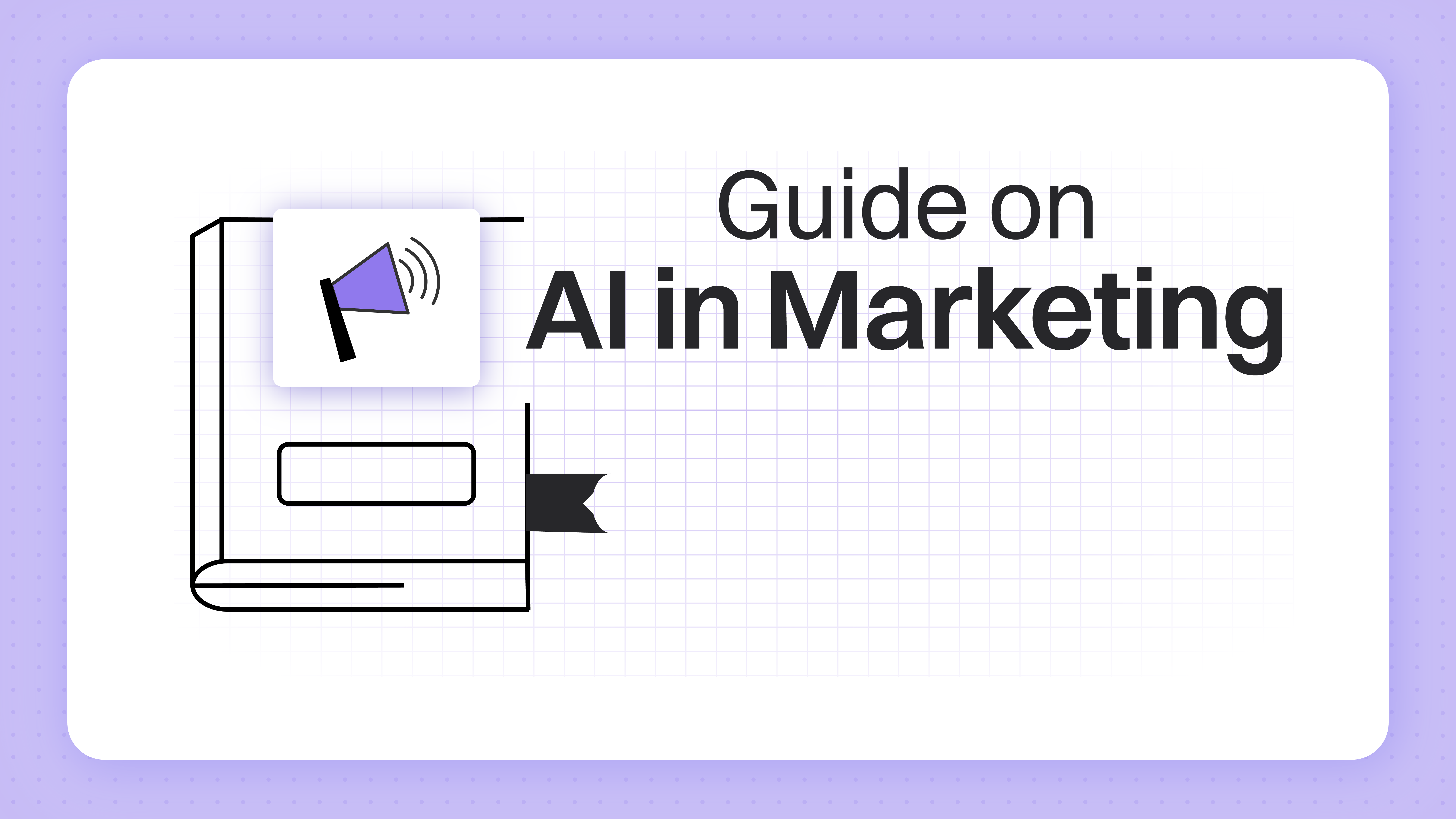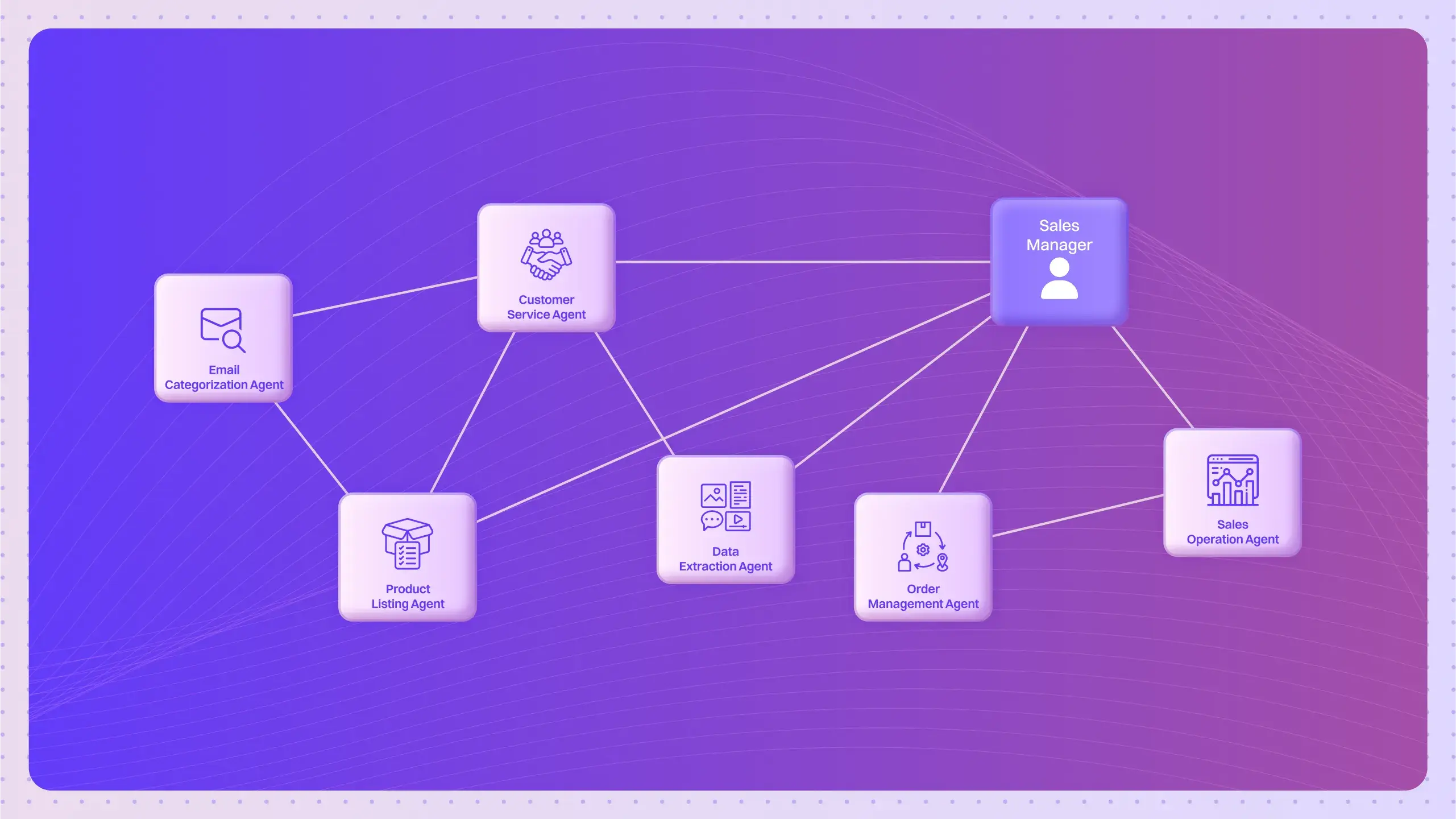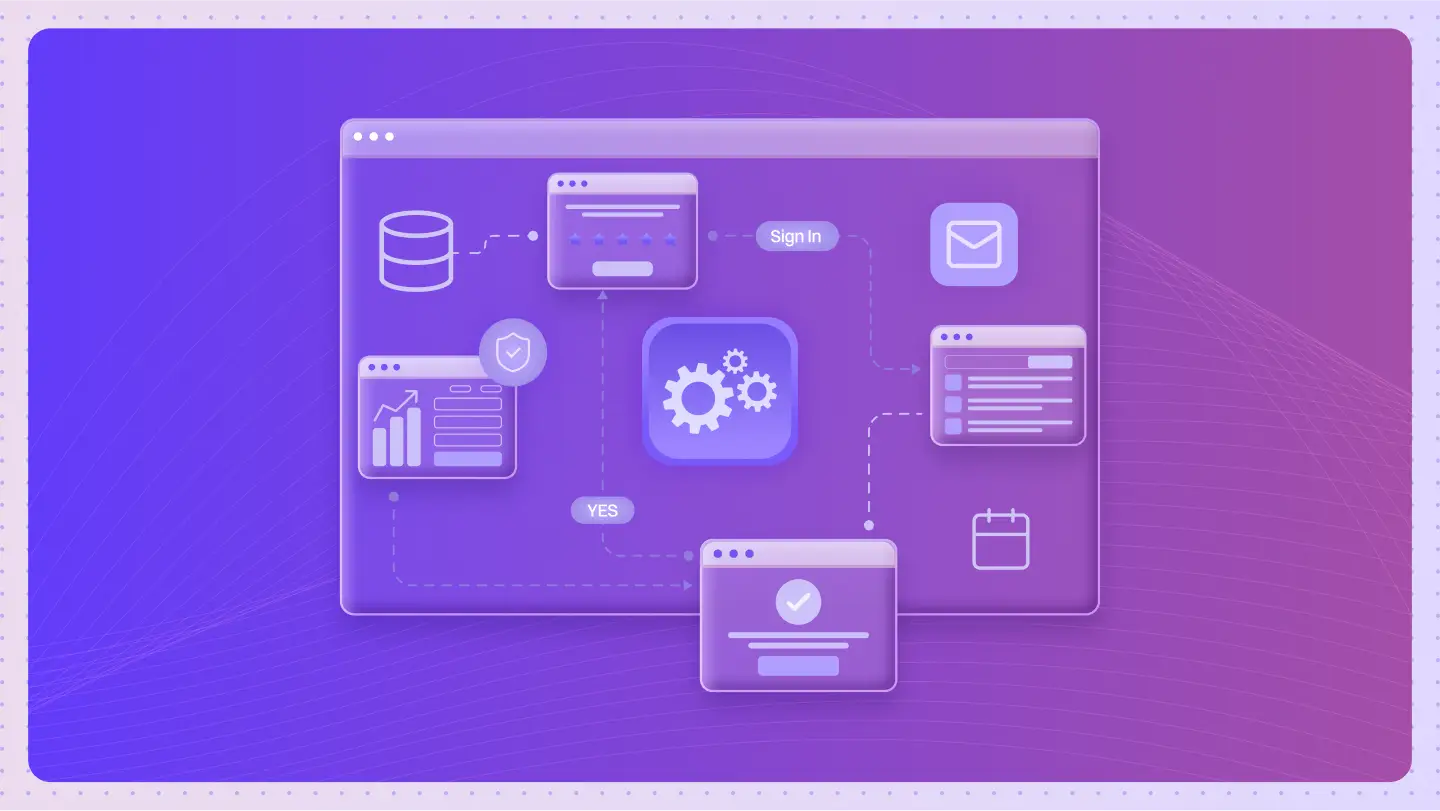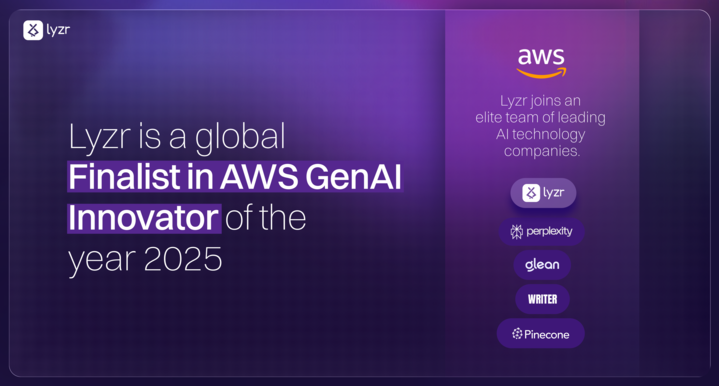Table of Contents
ToggleImagine this: It’s 3 a.m., and your marketing team is fast asleep, but your latest campaign is running at full speed—generating leads, personalizing messages, and even writing product descriptions for the morning’s email blast.
No, it’s not magic. It’s AI, and it’s already happening.
In fact, 85% of companies using AI in their marketing strategies say they’ve seen a massive leap in ROI – because AI never sleeps, never misses a deadline, and is always learning.
While you’re grabbing your second coffee, AI has already optimized your ad spend, delivered real-time customer insights, and launched five A/B tests – all before breakfast.
Take Coca-Cola, for example. They’ve already used AI to craft personalized ads for millions of users, dynamically creating video content that changes based on who’s watching.
It’s like having a marketing wizard in your back pocket, and it’s reshaping the way brands interact with their audiences.
But here’s the kicker: this isn’t some future technology.
It’s happening right now, and if your brand isn’t on board, you’re already playing catch-up.
So, are you ready to dive into the AI marketing wave?
Let’s break down how this game-changing tech is revolutionizing every aspect of the marketing landscape.
How AI Has Transformed the Marketing Landscape
Gone are the days when marketing meant crafting a single ad and praying it would land with your audience.
Today, marketing has become a science—a data-driven, AI-powered machine that learns, optimizes, and predicts faster than any human ever could.

Let’s take a peek at what’s changed:
1. Data Overload, Meet AI
In 2023, we produced over 74 zettabytes of data. To put that in perspective, if each byte were a grain of rice, it would be enough to cover the entire Earth!
The problem? Humans can’t sift through this mountain of information, but AI thrives on it.
With its ability to process massive amounts of data in milliseconds, AI digs out actionable insights, helping marketers pinpoint customer preferences, trends, and behaviors like never before.
2. Hyper-Personalization at Scale
Remember the days of batch-and-blast emails? Those days are gone, my friend.
AI is turning mass marketing into hyper-personalized experiences.
Netflix, for instance, uses AI to personalize content recommendations for its 230+ million users.
AI creates tailored messages, landing pages, and ads—customized for every single customer—at a scale that would be impossible for any marketing team.
3. Predictive Analytics: Marketing with a Crystal Ball
Thanks to AI, marketers no longer need to guess what works.
With predictive analytics, AI looks into past data and consumer behavior to tell you what your customers are going to do next.
Imagine knowing that your customers will prefer product A over product B even before launching a campaign—that’s the power AI brings to the table.
4. Customer Service Meets AI with Chatbots
You’ve likely chatted with a bot recently without even realizing it.
75% of consumers now prefer using chatbots for simple tasks, saving your customer service team from drowning in routine inquiries.
AI-powered chatbots can instantly answer questions, collect lead data, and even upsell products while giving your customers the quick, 24/7 responses they crave.
In short, AI is doing more than just shaking things up – it’s rewriting the marketing playbook.
From understanding customer behavior to personalizing every touchpoint, AI is allowing brands to build deeper relationships with their audiences while optimizing their resources.
Marketers are no longer working with one-size-fits-all campaigns—they’re creating dynamic, data-driven strategies that evolve in real-time.
So, the real question is: What can’t AI do in marketing?
Key Functions of Marketing Enhanced by AI
When we talk about AI revolutionizing marketing, it’s not just a buzzword—it’s transforming every aspect of the marketing funnel. From content creation to customer experience, AI is weaving its magic into core marketing functions, making them faster, smarter, and more precise. Let’s break it down:

1. Content Creation
Ever wonder how AI tools like Jasper AI or Skott can churn out blog posts, social media updates, and email copy faster than you can finish your morning coffee?
AI-powered content generators are leveraging natural language processing (NLP) to create human-like content that resonates with audiences.
No more writer’s block—just endless creativity at your fingertips. With AI, you can go from concept to campaign in a matter of minutes, not weeks.
2. Customer Insights & Segmentation
The days of guesswork are long gone. AI helps brands dig into their data to uncover customer insights that would otherwise go unnoticed.
AI-powered insights scan through purchasing behaviors, social media interactions, and browsing histories, allowing marketers to segment their audience into hyper-specific groups.
Whether you’re targeting Gen Z e-commerce enthusiasts or boomers looking for retirement plans, AI ensures your message reaches the right audience at the right time.
3. Personalization at Scale
How do brands like Spotify and Amazon know what you want before you do? Spoiler: It’s AI.
With AI, you can create personalized experiences for millions of customers without breaking a sweat.
Think personalized email campaigns, product recommendations, and even tailored website experiences—all done with AI’s data-crunching power.
In fact, 91% of consumers are more likely to shop with brands that provide personalized offers and recommendations.
So if you’re not using AI to personalize your marketing efforts, you’re leaving serious money on the table.
4. Predictive Analytics & Decision Making
Imagine being able to predict which customers are about to churn or which product is about to become a bestseller.
That’s the magic of predictive analytics powered by AI.
By analyzing past behavior, AI helps marketers make informed decisions about where to allocate their budget, which campaigns will perform best, and what messaging will resonate.
It’s like having a crystal ball for your marketing strategy.
5. Customer Support with Chatbots
AI is transforming customer service with tools like AI chat agents.
Chatbots can handle everything from basic inquiries to more complex issues, freeing up your team to focus on high-value interactions.
These bots operate 24/7, providing instant responses and improving the customer experience.
And let’s face it—customers love quick, easy solutions, so it’s a win-win.
6. Social Media Monitoring & Management
AI is also your new BFF when it comes to social media.
Platforms like Hootsuite or Buffer leverage AI to analyze trends, predict what content will perform best, and even help schedule posts at optimal times.
It’s like having a full-time social media strategist—minus the salary.
By embedding these AI tools into every marketing function, your brand can not only keep up with the competition but stay ahead of it. Whether you’re crafting campaigns or analyzing data, AI empowers marketers to do more with less.
Generative AI in Marketing
Generative AI is one of the hottest topics in marketing today, and for a good reason.
It’s no longer just about analyzing data or automating tasks – Generative AI is creating content, designing ads, and even building websites.
This technology allows marketers to scale creative efforts in ways that were unimaginable just a few years ago.
1. Content Generation
Imagine having AI write entire blog posts, make social media posts, or ad copy in a matter of seconds.
That’s what Generative AI tools like Skott are doing for marketers today.
Not only does it save time, but it also ensures your content is consistently high-quality.
Whether you need a 1,000-word blog post or a quick Instagram caption, Generative AI gets the job done fast.
2. Creative Asset Development
Beyond just text, Generative AI is revolutionizing the creation of visual assets.
Tools like DALL·E and MidJourney are generating custom imagery for marketing campaigns, while others are even creating video ads.
This means you can produce visuals at scale without needing a huge design team, making it easier to A/B test various creatives and find what works best.
3. Product and Campaign Personalization
The personalization capabilities of Generative AI are unparalleled.
Using data to understand user preferences, AI can generate personalized marketing materials for each segment of your audience.
From email marketing to product recommendations on e-commerce websites, Generative AI ensures that each user has a unique, tailored experience.
4. SEO Optimization
Generative AI is also stepping into the world of SEO.
Platforms like Jasper AI and Frase can help you optimize your website content for SEO by automatically suggesting improvements, finding keyword opportunities, and even generating topic clusters for content marketing strategies.
With SEO being a vital aspect of digital marketing, having AI-powered tools for optimization is a game-changer.
5. Predicting Trends and Consumer Behavior
One of the most exciting aspects of Generative AI is its predictive capabilities. AI can analyze historical data and predict future trends in consumer behavior.
Imagine knowing what your customers will want before they even realize it.
With predictive modeling, you can anticipate market changes and adjust your strategies proactively, ensuring that you’re always a step ahead of the competition.
6. Customer Engagement and Support
AI chatbots and virtual assistants are revolutionizing customer support by handling inquiries, resolving issues, and even suggesting products based on user preferences—all in real-time.
This not only reduces the workload on human support teams but also enhances customer satisfaction by providing 24/7 assistance.
Brands using AI-driven chat solutions are seeing improvements in response times, customer satisfaction, and engagement rates.

Generative AI is not just about creating; it’s about enhancing every facet of marketing from content creation to predictive analytics, making your campaigns smarter, faster, and more effective.
Whether you’re a small business or a major brand, Generative AI offers a significant competitive edge.
How Can AI in Marketing Improve ROI?
When it comes to marketing, every dollar spent needs to count.
That’s where AI steps in, delivering smarter insights and automating repetitive tasks, ultimately driving better return on investment (ROI).
Let’s dive into how AI in marketing can maximize your ROI across various touchpoints.
1. Automating Repetitive Tasks
Marketing teams are bogged down by repetitive tasks like email marketing, content scheduling, and data collection.
AI streamlines these processes, freeing up time for marketers to focus on strategic tasks.
Platforms like Jazon, our AI SDR agent, automate outreach and follow-ups, ensuring your campaigns reach more people without additional resources.
2. Better Audience Targeting
AI-powered tools analyze vast amounts of data in real-time to create hyper-targeted marketing campaigns.
Instead of relying on broad demographic data, AI enables marketers to focus on user behavior, preferences, and interests.
By implementing AI tools like Skott, you can craft personalized campaigns that resonate more deeply with your audience, improving engagement and, ultimately, ROI.
3. Predictive Analytics for Smarter Decision-Making
AI can predict trends based on historical data, helping you stay ahead of the competition.
With AI-driven insights from knowledge search tools, marketers can identify what campaigns are likely to succeed and which strategies need tweaking.
This foresight means less wasteful spending and more focused, data-driven decisions that boost your bottom line.
4. Optimizing Ad Spend
AI can analyze thousands of data points to optimize your advertising strategies in real time.
By monitoring consumer behavior, click-through rates, and conversion data, AI platforms can adjust your ad spend automatically, ensuring your budget goes towards the most impactful areas.
Tools like Skott not only enhance the efficiency of paid ads but also ensure that you’re getting the highest possible ROI from every dollar spent.
5. Enhanced Customer Engagement
AI chatbots and virtual agents, like those powered by Lyzr’s AI Chat Agent, are revolutionizing customer engagement by providing 24/7 support, answering questions, and guiding users through the purchase funnel.
This increases customer satisfaction and boosts sales without needing to scale your team, making your investment in AI highly cost-effective.
6. Real-Time Personalization
AI allows brands to personalize their marketing efforts in real time.
Whether it’s tailoring an email campaign based on a user’s browsing history or offering personalized product recommendations via a chatbot, AI ensures that every customer interaction is unique.
This level of personalization drives higher conversion rates and customer loyalty, which directly impacts ROI.
By implementing AI in marketing strategies, businesses can reduce costs, enhance efficiency, and improve results.
From automating tasks to personalizing customer journeys, AI is your key to maximizing ROI and staying competitive in today’s fast-paced digital landscape.
Challenges of AI in Marketing
While AI in marketing offers immense potential for improving efficiency and ROI, it’s not without its challenges. From integration issues to ethical concerns, businesses need to navigate carefully to make the most of AI-driven marketing strategies.

1. Data Privacy and Security
AI thrives on data. The more data you have, the better AI tools can learn and optimize.
However, this reliance on data raises significant concerns around data privacy and security.
With stricter regulations like GDPR, companies must ensure that their use of AI complies with local and international laws, particularly when handling sensitive customer information.
AI solutions must also ensure data integrity and prevent breaches, which could harm your brand’s reputation.
2. Implementation Complexity
For many companies, integrating AI into existing marketing systems is a daunting task.
The lack of internal expertise or resources can hinder the seamless adoption of AI.
Businesses need to invest in AI frameworks that are compatible with their existing infrastructure and scalable for future needs.
Platforms like Lyzr’s Agent API help overcome these challenges by providing easy-to-integrate AI solutions.
3. High Costs
While AI can deliver significant long-term cost savings, the initial investment can be high.
Implementing sophisticated AI tools often requires substantial upfront costs for software, hardware, and training.
Furthermore, maintaining and scaling these solutions can also add to the cost, which may pose a barrier for small and medium-sized businesses.
4. Ethical Concerns
As AI becomes more embedded in marketing strategies, concerns around ethics and bias have emerged.
AI systems can unintentionally perpetuate biases present in the training data, leading to discriminatory advertising or targeting.
For example, Generative AI tools that generate content can reflect underlying biases, which might alienate segments of your audience.
Addressing this requires ongoing monitoring, testing, and adjustments to ensure AI operates in an unbiased and ethical manner.
5. Dependency on Quality Data
The effectiveness of AI tools is directly linked to the quality of data they are fed.
Poor data quality, including inaccurate, incomplete, or outdated information, can lead to flawed insights and ineffective campaigns.
To avoid this, businesses need to invest in data management systems that ensure data is clean, relevant, and up-to-date.
6. Resistance to Change
One of the biggest challenges in implementing AI is internal resistance.
Employees may feel threatened by AI, fearing that it could replace their jobs.
However, the goal of AI in marketing is not to replace humans but to empower them with better tools and insights.
Educating your team on how AI tools can enhance their roles, rather than replace them, is crucial for smooth adoption.
Best Practices for Implementing AI in Marketing
As companies increasingly adopt AI technologies, following best practices is crucial for ensuring successful implementation and maximizing the benefits.
Let’s dive into some key strategies for effectively leveraging AI in your marketing efforts.

1. Start Small, Then Scale
While AI has the potential to transform your entire marketing strategy, it’s best to start with smaller projects that deliver quick wins.
For example, you can begin by automating email marketing or integrating an AI chatbot for customer service.
Once you see the results, scale up by implementing more complex AI-driven solutions like predictive analytics and personalized content generation.
2. Ensure Data Quality
AI is only as good as the data it learns from.
Ensure that your data is accurate, complete, and relevant.
Implementing strong data management practices will allow AI systems to generate valuable insights and make informed decisions.
Clean data helps to avoid misleading recommendations, ensuring more precise personalized marketing campaigns and better audience targeting.
3. Align AI Goals with Business Objectives
Before deploying AI solutions, it’s important to align them with your business goals. What are you trying to achieve?
Whether it’s improving customer engagement, increasing sales conversions, or enhancing user experience, make sure your AI tools are aligned with these objectives.
This helps you focus on the right AI use cases for your company and measure ROI effectively.
4. Invest in Training and Upskilling
For AI to succeed in your organization, your team must understand how to use it.
Investing in employee training and upskilling your marketing team will help them become more comfortable with AI tools.
Encourage your team to learn how to interpret AI insights, manage campaigns, and work alongside AI systems for maximum efficiency.
There are numerous AI marketing courses available that can help marketers stay ahead of the curve.
5. Use AI to Enhance Personalization
Personalization is a key differentiator in marketing.
AI can analyze large volumes of customer data to craft personalized content and targeted marketing campaigns, leading to higher engagement and conversion rates.
By using AI-driven personalization, companies can create more meaningful interactions with their customers, improving satisfaction and loyalty.
6. Monitor and Adjust Regularly
AI tools should not be set and forgotten.
Regular monitoring is necessary to ensure that the AI system is performing as expected and aligned with your business goals.
AI systems learn and improve over time, but they may also require fine-tuning.
Continually assess the effectiveness of your AI campaigns, make adjustments as needed, and ensure the models are producing accurate results.
7. Balance Automation with Human Oversight
While AI can automate many tasks, it should work in tandem with human marketers for the best results.
Marketers should use AI insights to guide decision-making, but creativity, strategy, and emotional intelligence remain essential human traits that complement AI.
Having the right balance between AI automation and human oversight ensures better, more creative marketing outcomes.
4 Types of Marketing AI
AI is revolutionizing how marketers approach everything from content creation to customer service, but not all AI is created equal.
There are four primary types of AI that marketers should be aware of, each with its unique capabilities and use cases.
Let’s break them down.

1. Task Automation AI
Task automation AI is designed to handle repetitive, time-consuming tasks, allowing marketing teams to focus on higher-value activities.
Examples include scheduling social media posts, sending out email newsletters, or managing CRM systems.
By automating these processes, AI can significantly increase efficiency and free up time for strategy and creativity.
For instance, tools like AI-powered email generators automate the process of writing and sending personalized emails, drastically improving outreach efforts.
2. Machine Learning AI
Machine learning AI enables systems to learn from data over time and improve their performance without needing explicit programming.
This type of AI is crucial for personalization and predictive analytics in marketing.
For example, machine learning can analyze consumer behavior to predict future actions, helping marketers optimize campaigns, pricing strategies, and product recommendations.
Companies using AI-based content recommendations are leveraging machine learning to deliver highly tailored customer experiences.
3. Natural Language Processing (NLP) AI
NLP allows AI to understand, interpret, and generate human language. This technology powers chatbots, virtual assistants, and content generation tools.
With NLP, marketers can automate customer service inquiries, create SEO-optimized content, and conduct sentiment analysis on social media posts to gauge customer sentiment.
For instance, Skott AI uses NLP to generate engaging blog posts, social media content, and personalized messaging for clients, speeding up the content creation process.
4. Generative AI
Generative AI goes beyond analyzing and interpreting data—it creates something entirely new.
From writing entire marketing campaigns to designing personalized experiences, generative AI is transforming how marketers create and distribute content.
This type of AI can automatically generate blog posts, product descriptions, and even video scripts, all tailored to specific audience segments.
A prime example of generative AI in action is AI-based content tools like Skott, which allow marketers to automate content production across platforms.
By understanding the different types of AI in marketing, you can leverage the right tools for your business needs.
Whether it’s automating workflows or personalizing customer experiences, these AI types will form the backbone of your marketing strategy.
How to Design an AI Marketing Strategy
Creating an effective AI-driven marketing strategy is more than just adopting the latest technology – it requires thoughtful planning and integration across all marketing efforts.
Here’s a step-by-step guide to designing a marketing strategy that leverages AI’s full potential.

1. Define Your Goals
Before diving into AI, clearly outline your marketing objectives.
Are you aiming to boost lead generation, improve customer engagement, or increase conversion rates?
Having specific goals will help you determine which AI tools are best suited for your strategy.
For instance, if your focus is on content creation, tools like Skott, which automates marketing content, might be your go-to.
2. Identify the Right AI Tools
Once your goals are clear, identify the AI tools that can help you achieve them.
There are tools for every function – whether it’s SEO optimization, personalized email marketing, or predictive analytics.
Choose tools that integrate seamlessly into your current tech stack and focus on solving specific pain points.
For example, if you want to enhance customer interactions, consider implementing an AI chatbot or virtual assistant for real-time customer support.
3. Personalize the Customer Journey
Personalization is one of AI’s biggest strengths in marketing.
Leverage AI-driven personalization tools to tailor your messaging, content, and product recommendations based on user behavior and preferences.
This could include using AI-powered analytics to segment your audience and create hyper-targeted campaigns.
Generative AI can also craft personalized marketing materials such as emails, product suggestions, and social media ads, offering an individualized experience at scale.
4. Automate Repetitive Tasks
Marketing teams can save time and resources by automating mundane, repetitive tasks like social media posting, email outreach, and data collection.
This allows marketers to focus on more strategic activities, such as optimizing campaigns and nurturing relationships with clients.
For example, AI-powered SDRs can take over lead qualification and follow-up tasks, allowing human SDRs to concentrate on closing deals.
5. Monitor and Optimize Performance
AI excels at processing vast amounts of data and offering real-time insights into marketing campaign performance.
Use these insights to tweak and optimize your strategy continuously.
Whether it’s adjusting your advertising spend or improving the content flow, AI-driven analytics can help ensure your efforts are delivering the best possible results.
By thoughtfully integrating AI into your marketing strategy, you can streamline processes, enhance personalization, and maximize campaign performance. Whether it’s using chatbots or predictive analytics, the right AI tools can transform your marketing efforts and drive real results.
How Does AI Contribute to Personalization in Marketing Campaigns?
AI’s ability to analyze large amounts of data in real time has transformed personalization in marketing.
Customers expect highly tailored experiences, and AI enables marketers to deliver just that.

Here’s how AI enhances personalization:
1. Targeted Recommendations
AI-driven recommendation systems analyze customer behavior to suggest products or services that match their interests.
Brands like Amazon and Netflix leverage these systems to boost engagement and sales.
2. Dynamic Email Campaigns
With AI-powered email automation, marketers can create personalized email content for each recipient based on their preferences, increasing open rates and conversions.
3. Tailored Advertising
AI tools like ad optimization platforms create hyper-targeted ads that are shown to the right audience at the right time, improving click-through rates.
4. Personalized Web Experiences
AI enhances the user experience on websites by analyzing visitor behavior and serving personalized content in real time.
5. AI-Powered Chatbots
AI chatbots offer personalized interactions with customers, providing recommendations and resolving issues based on previous interactions.
Step-by-Step Guide to Incorporating AI in Your Marketing Strategy
Incorporating AI into your marketing strategy doesn’t have to be an overwhelming task.
With the right approach, you can start leveraging AI’s potential to enhance campaign effectiveness, drive personalization, and improve ROI.

Here’s a step-by-step guide to seamlessly integrating AI into your marketing efforts:
1. Identify Areas for AI Integration
Start by identifying the marketing functions where AI can have the most impact.
Whether it’s content creation, customer segmentation, or automated outreach, pinpointing key areas will help you focus your AI investments.
For example, AI-powered tools like AI SDRs can streamline lead generation, while AI Content Generators can boost your content marketing efforts.
2. Choose the Right AI Tools
Selecting the right AI tools is critical for your success.
Depending on your marketing goals, you may want to explore AI for email automation, customer service, or even predictive analytics.
Lyzr’s suite of AI tools, including AI SDR, Knowledge Search, and AI Marketer, provide robust solutions to meet various marketing needs.
3. Integrate AI into Your Existing Systems
Ensure that the AI tools you select can be integrated smoothly with your current systems, such as your CRM, content management, and marketing automation platforms.
For instance, Lyzr’s Agent API provides easy integration, allowing developers to build custom AI-driven solutions without disrupting existing workflows.
4. Test and Optimize Your AI Solutions
Once your AI tools are in place, start small by testing them on specific campaigns. Use A/B testing and data analytics to understand their impact.
This is where predictive analytics and machine learning algorithms can play a significant role in refining and optimizing your strategy for maximum efficiency (AI in Predictive Analytics).
5. Monitor Performance and Iterate
AI is not a “set it and forget it” solution.
Regularly monitor the performance of your AI-driven campaigns and look for areas where further improvement can be made.
Use insights from AI analytics tools to continuously tweak your approach and stay ahead of the competition.
6. Train Your Team
Incorporating AI into your marketing strategy also means upskilling your team.
Make sure your marketers understand how to work with AI tools to complement their creativity and strategy.
Lyzr’s platform offers comprehensive support and resources to help teams get up to speed with AI technology (AI Training Resources).
7. Scale Gradually
Once you’ve tested and proven the effectiveness of your AI tools, you can scale them across various marketing functions.
Consider expanding into AI-powered customer support with AI Chatbots or personalized customer journeys through advanced AI recommendation systems.
By following these steps, you’ll be well on your way to incorporating AI into your marketing strategy, paving the way for improved efficiency, personalized customer experiences, and, ultimately, a significant increase in ROI.
How to Select an AI Marketing Platform?
Choosing the right AI marketing platform is crucial to unlocking the full potential of AI in your strategy.
With so many tools available, how do you know which one fits your business needs?

Here’s a simple checklist to help you select the perfect AI platform for your marketing efforts.
1. Identify Your Goals
First, clearly define what you want to achieve with AI. Whether it’s improving customer engagement, boosting conversion rates, or automating repetitive tasks, your goals will guide your choice.
If your aim is to automate outreach, tools like Lyzr’s AI SDR could be ideal.
2. Evaluate Features and Integrations
Look for a platform that integrates seamlessly with your existing tech stack.
For instance, if you need AI to work with your CRM, ensure the platform supports that.
Lyzr offers versatile AI tools like the AI Marketer that can plug into different systems, making integration smoother.
3. Customization and Scalability
Does the platform allow for customization to meet your unique marketing needs? And will it scale as your business grows?
Choose a solution that offers flexibility, such as Lyzr’s Agent API, which can be tailored to different marketing campaigns and applications.
4. Cost vs. ROI
The final consideration is cost. Assess whether the features justify the investment by considering the long-term ROI.
AI tools that automate processes like AI Sales Agents can significantly boost productivity, leading to higher returns.
Generative AI Marketing Predictions and Trends
Generative AI has taken the marketing world by storm, and it’s only going to get bigger.
From content creation to customer engagement, the future of AI in marketing is filled with endless possibilities.

Here are the top predictions and trends shaping the future of AI-powered marketing.
1. AI-Generated Content Will Dominate
By 2025, it’s predicted that over 90% of digital content will be AI-generated.
Brands are already using tools like Skott by Lyzr to create personalized, high-quality content at scale.
Expect more brands to follow suit, leveraging AI to streamline content production across blogs, emails, and social media.
2. Enhanced Personalization in Customer Journeys
AI will take personalization to the next level, making customer journeys more intuitive and tailored.
AI-driven platforms like AI Chat Agents are already being used to create hyper-personalized experiences, and this trend will only deepen as AI becomes more intelligent.
3. Smarter Ad Targeting and Budget Optimization
AI tools will revolutionize how marketers manage ad budgets and targeting.
Advanced AI algorithms will analyze user behavior and adjust campaigns in real-time to improve ROI.
Tools such as Lyzr’s AI Sales Funnel Optimization are already helping marketers allocate their budgets more effectively.
4. Voice Search and Conversational AI
As voice search continues to grow, AI will become even more integral in optimizing content for voice-enabled devices.
Marketers will need to focus on optimizing content for AI-driven searches, utilizing tools like Lyzr’s AI in Digital Marketing to stay ahead in this evolving landscape.
5. The Rise of No-Code AI Tools for Marketers
No-code AI platforms like Lyzr’s Agent API are empowering marketers without technical expertise to create complex AI-driven marketing strategies.
Expect more marketers to adopt these platforms to streamline their operations and enhance customer engagement.
6. Increased Adoption of AI for Predictive Analytics
AI’s ability to predict customer behavior and trends will become even more sophisticated.
Tools like Lyzr’s Data Analyzer will be pivotal in helping businesses anticipate customer needs and adjust their marketing strategies accordingly.
25 Examples of Using AI in Marketing
Got it! Here are 25 real-life examples of how brands are leveraging AI in their marketing strategies:
- Coca-Cola: Uses AI for data-driven personalization in marketing campaigns, ensuring each customer receives targeted ads based on their preferences.
- Sephora: Implements AI-powered virtual assistants to provide personalized skincare recommendations through their mobile app.
- Netflix: Leverages AI algorithms to recommend shows and movies based on user viewing history and preferences.
- Amazon: Uses AI for product recommendations, enhancing the customer shopping experience and boosting sales through personalized suggestions.
- Starbucks: Employs AI for its personalized rewards system, offering tailored promotions and suggestions based on past purchases.
- Nike: Uses AI to deliver customized product recommendations and forecast trends for better customer engagement.
- H&M: Integrates AI in its supply chain and uses predictive analytics to optimize product offerings based on customer trends.
- Unilever: Leverages AI in its marketing analytics, analyzing large datasets to create targeted and effective ad campaigns.
- BMW: Uses AI-powered chatbots to enhance customer service by providing personalized responses to inquiries and assisting with test drive bookings.
- L’Oréal: Employs AI-powered tools for virtual try-ons, allowing customers to test makeup products online before purchasing.
- Spotify: Uses AI to curate personalized playlists for users, enhancing user engagement and retention.
- McDonald’s: Leverages AI through dynamic menu boards that suggest products based on time of day, weather, and trending items.
- The North Face: Uses IBM’s Watson AI to recommend products based on user preferences and environmental factors.
- Adidas: Implements AI to customize product designs for customers, improving user experience and fostering customer loyalty.
- Audi: Uses AI in video ad targeting to deliver more relevant and personalized ads to users.
- Alibaba: Employs AI for virtual fitting rooms and real-time fashion advice to enhance the online shopping experience.
- Domino’s: Leverages AI to streamline pizza delivery, using machine learning to predict customer orders and optimize delivery routes.
- Lowe’s: Uses AI-powered robots in stores to help customers find products and provide real-time inventory updates.
- American Express: Utilizes AI to detect and prevent fraud, enhancing customer trust and security in transactions.
- eBay: Implements AI to improve product recommendations and create personalized shopping experiences.
- Burberry: Uses AI to predict trends and optimize product placement in stores, improving sales and customer satisfaction.
- Under Armour: Leverages AI through its fitness app to offer personalized workout plans and product recommendations based on user data.
- Estee Lauder: Uses AI-powered virtual beauty advisors to provide personalized skincare consultations to customers online.
- PepsiCo: Employs AI to analyze social media data for real-time insights, helping shape product launches and marketing campaigns.
- BMW: Enhances the customer experience by using AI to predict maintenance needs and offer personalized vehicle recommendations.
20 Best AI Tools for Marketing
AI in marketing wouldn’t be as effective without the right tools to back it up.
Today’s market is flooded with AI-powered solutions, helping brands automate tasks, gather insights, and drive better results.
Below are the 20 best AI tools for marketing that can transform how companies engage with customers and scale their strategies.
- Lyzr’s AI Marketer: Automates content creation and distribution across 20+ platforms, ensuring consistent engagement and optimized marketing campaigns. Explore more about Lyzr’s marketing automation capabilities here.
- HubSpot AI: Powers inbound marketing strategies with AI-driven insights, automating lead generation and CRM management for enhanced efficiency.
- Jasper AI: Known for content generation, this tool helps marketers create high-quality blog posts, social media captions, and even ads at lightning speed.
- Copy.ai: Assists in crafting compelling copy for emails, social posts, and landing pages, leveraging AI to optimize tone, style, and effectiveness.
- MarketMuse: Uses AI to analyze and optimize content for SEO, helping brands rank higher on SERPs by creating relevant, authoritative content.
- Persado: Leverages AI to generate personalized messaging, optimizing marketing language to drive higher engagement and conversion rates.
- Drift: An AI-powered chatbot platform, Drift helps businesses automate customer communication, offering real-time responses and driving lead generation.
- Phrasee: Uses AI to write better email subject lines and ad copy, improving open rates, click-throughs, and conversion metrics.
- Crimson Hexagon: An AI-driven consumer insights platform that helps marketers analyze social media conversations and sentiment, shaping smarter marketing strategies.
- Adzooma: Automates ad campaign management, helping marketers optimize Google, Facebook, and Microsoft Ads with AI-backed recommendations.
- Loomly: An AI-powered social media management tool that helps marketers plan, create, and optimize posts with AI suggestions for better engagement.
- Hootsuite: Uses AI-driven social media management to schedule posts, track analytics, and gather insights for improved social media strategies.
- Acrolinx: An AI-powered content governance platform, ensuring brand voice consistency and content optimization across large marketing teams.
- Conversica: Automates customer outreach through AI, helping marketing teams identify qualified leads and engage them without manual intervention.
- Optimizely: An AI-based experimentation platform that enables marketers to test and optimize their web and mobile experiences for maximum engagement.
- Cortex: AI-powered social media tool that provides insights on when to post, what content to share, and how to increase social media ROI.
- Semrush: Utilizes AI to improve SEO strategy by analyzing competitor data, providing keyword recommendations, and automating on-page optimization.
- Crayon: Tracks competitors’ marketing strategies in real-time, using AI to deliver insights that help marketers stay ahead of the curve.
- Surfer SEO: Uses AI to analyze content and recommend SEO improvements, helping businesses optimize their websites and rank higher on Google.
- Tidio: Combines chatbots and AI to automate customer service and marketing communication, improving response times and driving engagement.
FAQs
AI is revolutionizing digital marketing by automating repetitive tasks, improving personalization, and enabling more data-driven decision-making, which boosts ROI.
Some popular AI tools include Jasper AI for content creation, HubSpot for CRM and automation, and Lyzr for AI-driven lead generation and personalization.
AI assists in content marketing by automating content generation, optimizing for SEO, and analyzing performance data to recommend improvements.
AI can enhance marketing efforts but won’t fully replace human creativity and strategy. It acts as a powerful tool for efficiency rather than a full replacement.
Companies like Netflix use AI for personalized recommendations, while Sephora utilizes AI chatbots for customer engagement and personalized shopping experiences.
AI analyzes customer behavior and preferences to deliver hyper-targeted content, which improves customer engagement and conversion rates.
Common challenges include data privacy concerns, the complexity of integrating AI with existing systems, and the need for specialized skills to manage AI tools effectively.
No, small businesses can also leverage AI marketing tools, especially those designed for ease of use, like Lyzr, which provides scalable AI solutions.
AI enhances ROI by automating mundane tasks, optimizing ad spend, and delivering personalized marketing at scale, which leads to more conversions.
Ethical concerns include the misuse of personal data, lack of transparency in AI algorithms, and the potential for AI to perpetuate biases in targeting and content creation.
Book A Demo: Click Here
Join our Slack: Click Here
Link to our GitHub: Click Here

